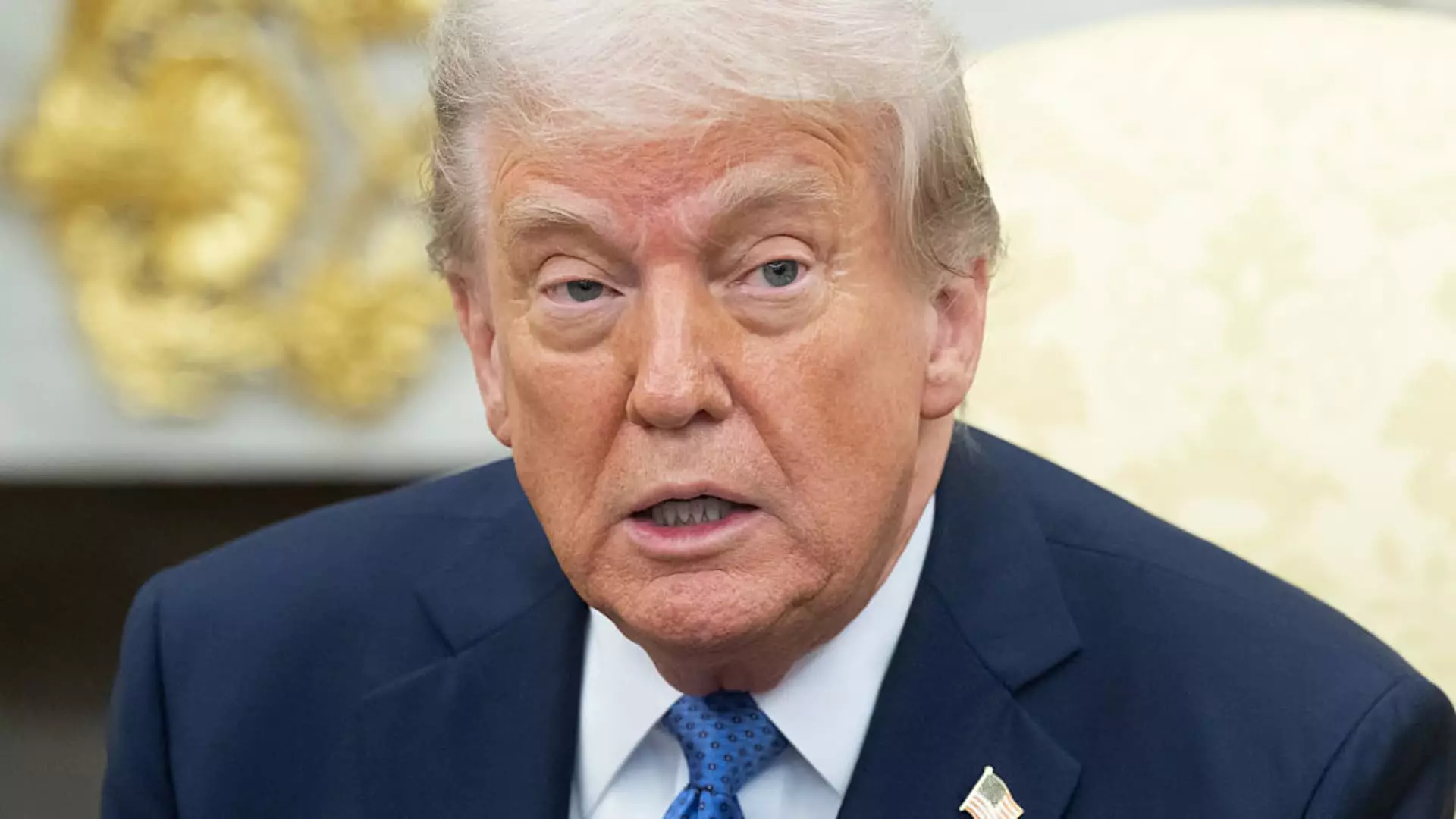The recent developments surrounding the legal statuses of international students in the U.S. reveal a deeply troubling reality masked by a thin veneer of procedural restoration. When Elizabeth D. Kurlan, a representative from the Justice Department, announced in a California courtroom that the records of countless international students would be restored, it seemed like cause for celebration. However, on closer examination, this announcement raises alarming questions about the irregularities in immigration enforcement under the Trump administration.
The administration’s abrupt revocation of student visas, particularly targeting those with political activism in their history or minor criminal charges, is not a mere hiccup in policy; it reflects a broader strategy of intimidation and suppression. This shift doesn’t just jeopardize the well-being of students but also casts a dark cloud over the integrity of the legal framework that governs the lives of thousands of individuals seeking education in the U.S. Students who have uprooted their lives to pursue academic dreams are now precariously suspended in a state of uncertainty.
A Flicker of Hope or a Beacon of Fear?
While Kurlan’s announcement that the termination of status based on criminal history would cease is a glimmer of hope, it feels more like a cynical move to placate an angry populace than a genuine concern for the individuals affected. The mere restoration of records seems an insufficient remedy, especially for those who now find themselves in a limbo where their student visas remain revoked, yet their records have been reinstated. Should students celebrate this change, or should they instead brace for the next potential storm?
The pragmatism of the situation is daunting: some students at universities such as UC Berkeley and Rochester Institute of Technology have been fortunate enough to find their statuses reactivated. However, for a significant number, the nightmare continues. The fact that status termination still appears on official records could deter future opportunities, including green card applications. This speaks to the inadequacy of the federal government’s response; while records are being activated, the underlying issues relating to student securities remain unaddressed.
Political Activism and Immigration: A Dangerous Conjunction
The intersection of criminal history and political activism within immigration policy is particularly disconcerting. The Trump administration has demonstrated a willingness to weaponize immigration status against those who dare to dissent. As revealed through Kurlan’s remarks, not all terminations were handled with transparency, leading many to feel that political beliefs were treated as grounds for reprisals. This raises crucial ethical questions about the integrity of the immigration system. How much longer will the silencing of dissent be tolerated in the guise of legal enforcement?
The real tragedy here is not just the uncertain futures of these students but the precedent being set. Policies that target individuals based on their political affiliations constitute an affront to the very foundational values of freedom and education, which should inspire, not silence. Legal frameworks that are designed to protect individuals should not be manipulated to serve a narrative of control and fear.
What’s Next for Vulnerable Students?
For international students navigating this tumultuous landscape, uncertainty is the only constant. Comments from immigration attorneys like Jath Shao suggest that the changes are “small but positive,” yet they echo a desperate need for substantive reform and policy consistency. Without comprehensive changes to ensure the safety of these students—both those benefitting from restored records and those still ensnared in a web of immigration malfeasance—the future looks bleak.
The alarming reality is that until there is a commitment to not just restoring records but also to correcting past injustices, students remain trapped in a regime of ambiguity and fear. The current administration’s approach to immigration policy—emphasizing potential criminal activity and political affiliations—poses a risk not only to the individuals impacted but to the moral fabric of American society as a whole.
Thus, while the restoration of SEVIS records may offer a temporary reprieve, it pales in comparison to the urgent need for systemic reform that genuinely prioritizes the rights and safety of international students in an environment that should celebrate diversity and freedom of speech.

